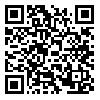دوره 10، شماره 2 - ( 11-1403 )
جلد 10 شماره 2 صفحات 0-0 |
برگشت به فهرست نسخه ها
Download citation:
BibTeX | RIS | EndNote | Medlars | ProCite | Reference Manager | RefWorks
Send citation to:



BibTeX | RIS | EndNote | Medlars | ProCite | Reference Manager | RefWorks
Send citation to:
khankeh H R, Farrokhi M, Hosseinabadi-farahani M, Saatchi M, Ahmadi S, Roudini J, et al . Challenges of social trust in disaster management focusing on COVID-19 in Iran: recommendations for gaining it again. Health in Emergencies and Disasters Quarterly 2025; 10 (2)
URL: http://hdq.uswr.ac.ir/article-1-588-fa.html
URL: http://hdq.uswr.ac.ir/article-1-588-fa.html
Challenges of social trust in disaster management focusing on COVID-19 in Iran: recommendations for gaining it again. فصلنامه سلامت در حوادث و بلایا. 1403; 10 (2)
چکیده: (175 مشاهده)
Background: Trust between a community and relief organizations is one of the prerequisites for community preparedness against all kind of hazards. The aim of study was exploring the challenges of social trust in disaster management focusing on COVID-19 in Iran and recommendations for gaining it again.
Materials and Methods: This study was carried out using conventional qualitative content analysis method with 27 lay people and managers of emergency and relief organizations who were selected purposefully with maximum diversity; it used in-depth semi-structured interviews to explore their experiences and perceptions. Data management was carried out using MAXQDA-2018 software and its analysis was performed using the content analysis method recommended by Graneheim and Lundman.
Results: In this study, two main categories emerged: "challenges of social trust" and "recommendations to promote social trust". The category of "challenges of social trust" had four subcategories: "managerial challenges", "misunderstanding of the event", “Lack of transparency", and “lack of coordination". The category of "recommendations to promote social trust" consisted of three subcategories: "managerial approaches", "trust-building", and "experience-based interventions".
Conclusion: Social trust can be improved by transparency in the commitments and responsibilities of relief organizations, timely and accurate provision of information (Risk communication), and emphasis on community engagement and solving managerial challenges. In addition, further studies using a quantitative approach should be conducted to investigate the relationship between social trust and disaster preparedness.
Materials and Methods: This study was carried out using conventional qualitative content analysis method with 27 lay people and managers of emergency and relief organizations who were selected purposefully with maximum diversity; it used in-depth semi-structured interviews to explore their experiences and perceptions. Data management was carried out using MAXQDA-2018 software and its analysis was performed using the content analysis method recommended by Graneheim and Lundman.
Results: In this study, two main categories emerged: "challenges of social trust" and "recommendations to promote social trust". The category of "challenges of social trust" had four subcategories: "managerial challenges", "misunderstanding of the event", “Lack of transparency", and “lack of coordination". The category of "recommendations to promote social trust" consisted of three subcategories: "managerial approaches", "trust-building", and "experience-based interventions".
Conclusion: Social trust can be improved by transparency in the commitments and responsibilities of relief organizations, timely and accurate provision of information (Risk communication), and emphasis on community engagement and solving managerial challenges. In addition, further studies using a quantitative approach should be conducted to investigate the relationship between social trust and disaster preparedness.
| بازنشر اطلاعات | |
 |
این مقاله تحت شرایط Creative Commons Attribution-NonCommercial 4.0 International License قابل بازنشر است. |


